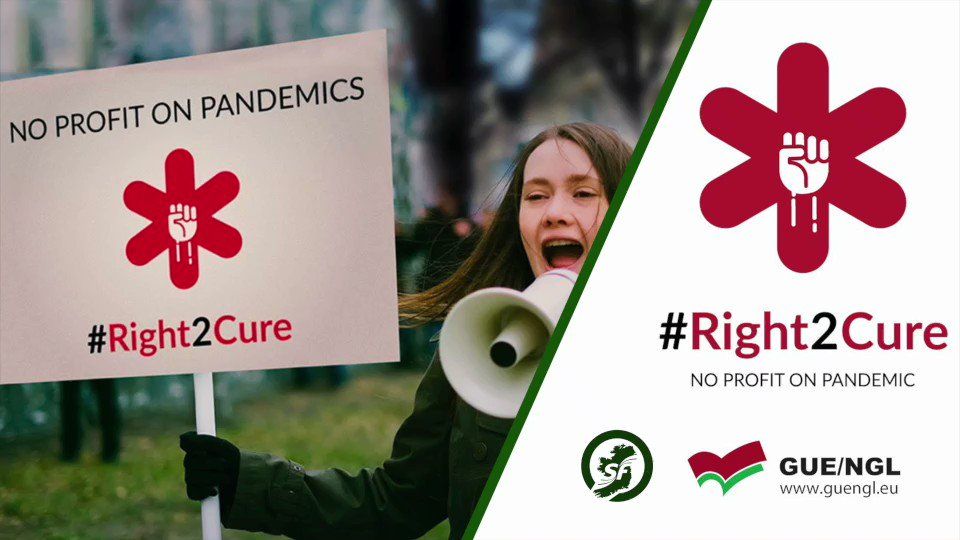The incredible is happening these days! Last night, in the first part of the Porta a Porta program, the guests included Piero De Lorenzo, CEO of Irbm di Pomezia; Lorenzo Wittum, president and CEO of AstraZeneca and Ranieri Guerra, former exponent of the Glaxo Foundation and now Deputy Director of the WHO, largely financed by Bill Gates and two foundations closely linked to him: CEPI and GAVI.
In short, a great convention of exponents, members or in any case subjects who have had to do with pharmaceutical companies. All broadcast on Rai 1, a public TV it goes without saying . Also present was the Undersecretary of the Ministry of Health Sandra Zampa who consented to whatever they said, even in the face of truly absurd things.
Wittum said that “arrangements were made very quickly to start production” (currently “top secret” agreements) and that “there is no struggle between pharmaceutical companies, but the virus is being fought” and at the same time “we have need many vaccines “. If he doesn’t say it who should say it?
Furthermore, after so much rhetoric and little science, it was blatantly said that, unlike other cases, the EMA had already started the rolling review on the Astrazeneca vaccine although there were not yet complete data. Question: how can rigorous regulatory processes be carried out in this regard? How can we be sure that the European regulatory authority’s assessment is impartial and correct?
A thrilling scenario aggravated by the fact that Ranieri Guerra has made it clear that “accelerating regulatory procedures is risky”, underlining that the FDA’s rolling review is different from that of the EMA. In light of this, the only policy in the studio nodded uncritically at everything, not even knowing the cost of Pfizer’s vaccine.
Let’s not forget that pharmaceutical companies are not philanthropic associations, but multinationals that over the years have put pressure on the states, expropriating more and more our right to public health, becoming advocates of that advanced capitalism that sees patents and rights as the maximum source of profit. intellectual property on discoveries that should be in the public domain as beneficial to everyone’s health.
In addition to celebrating the effectiveness of future anti-Covid-19 vaccines, it would be appropriate, as Crisanti states, to establish transparent scientific communication, consisting of the full publication of data, an essential element in a phase like this to establish a feeling of trust, in which legitimate questions can find answers, justified and demonstrated, which today can no longer be denied.
Another problem certainly concerns the distribution of the vaccine; while Western countries have already grabbed billions of doses, Covax it managed to obtain only 250 million doses compared to the 2 billion doses needed for the countries, known as the “Third World”, in the western world. While Von der Leyen tells with great fanfare how the EC is dealing with the distribution of vaccines to low-income countries, financing Covax, he forgets to say that, through bilateral agreements with pharmaceutical companies, the same countries of the European Union are hoarding all the doses that will be produced, leaving other countries uncovered by vaccination supplies. For example, Pfizer has already sold more than 80% of the doses it will be able to produce by the end of next year to only 14% of countries (the richest, of course). These are chauvinist policies on vaccinations: the privilege of those who can afford it over those who cannot, the privilege of the West over all.
To try to counter this unequal competition, India, South Africa and Doctors Without Borders have jointly asked the World Trade Organization for a derogation from the patents of vaccines, other drugs, and various medical technologies, which would allow greater sharing of data and knowledge, as well as a more agile production, and at lower costs, of the medical aids necessary to fight the virus. It seems that in the event of a crisis it is possible to ask for a derogation from the TRIPS agreements of the WTO, those that regulate intellectual property, and that allow the pharmaceutical industries to fix the price of medical devices and make a huge profit.
Many countries, international organizations and associations and parties have supported the proposal (in Italy Power to the People and the Communist Refoundation), while richer countries such as the USA, the EC and Canada have opposed it. It so happens that they were the very same people who are the main financiers of the pharmaceutical companies, and with whom, evidently, they claim a relationship of exclusivity. A final verdict is expected in December, which will decide what really matters in the end: whether the additional profits of the very rich multinationals or the lives of the people.
The petition that everyone can join: https://www.right2cure.eu/
–


